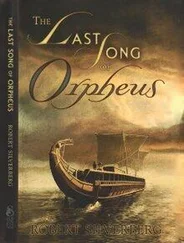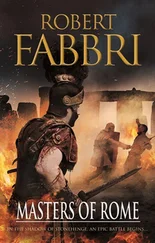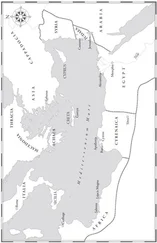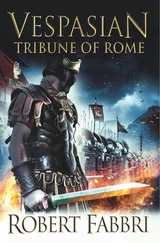Robert Fabbri - Rome's lost son
Здесь есть возможность читать онлайн «Robert Fabbri - Rome's lost son» весь текст электронной книги совершенно бесплатно (целиком полную версию без сокращений). В некоторых случаях можно слушать аудио, скачать через торрент в формате fb2 и присутствует краткое содержание. Год выпуска: 2015, ISBN: 2015, Издательство: Atlantic Books, Жанр: Исторические приключения, на английском языке. Описание произведения, (предисловие) а так же отзывы посетителей доступны на портале библиотеки ЛибКат.
- Название:Rome's lost son
- Автор:
- Издательство:Atlantic Books
- Жанр:
- Год:2015
- ISBN:9780857899668
- Рейтинг книги:5 / 5. Голосов: 1
-
Избранное:Добавить в избранное
- Отзывы:
-
Ваша оценка:
- 100
- 1
- 2
- 3
- 4
- 5
Rome's lost son: краткое содержание, описание и аннотация
Предлагаем к чтению аннотацию, описание, краткое содержание или предисловие (зависит от того, что написал сам автор книги «Rome's lost son»). Если вы не нашли необходимую информацию о книге — напишите в комментариях, мы постараемся отыскать её.
Rome's lost son — читать онлайн бесплатно полную книгу (весь текст) целиком
Ниже представлен текст книги, разбитый по страницам. Система сохранения места последней прочитанной страницы, позволяет с удобством читать онлайн бесплатно книгу «Rome's lost son», без необходимости каждый раз заново искать на чём Вы остановились. Поставьте закладку, и сможете в любой момент перейти на страницу, на которой закончили чтение.
Интервал:
Закладка:
Nero affirmed the authority of the Senate, hoped for the consensus of the military, avowed that he had no animosities, brought with him no wrongs to be righted nor any desire for revenge and promised that he would not be the judge of all law cases and, also, that there would be no bribery within his household. As Nero talked on into the afternoon, Vespasian’s mind turned to his revenge. He scanned the lines of senators, each looking as if the weak, husky voice addressing them was the most beautiful sound in creation, and soon found the object of his hatred. Paelignus again almost jumped from his stool as he felt Vespasian’s gaze upon him and then turned into the full venom of his stare. As Nero worked himself up to a rhetorical climax, referring often to his scroll, Vespasian bathed in the thought of Paelignus’ humiliation and then death until, having peaked with the announcement that after Claudius’ funeral the following day he would meet with the Armenian delegation waiting in the city and, in one move, restabilise the Roman East, the Senate rose and cheered the Golden Prince who was now their Emperor.
The Junior Consul stood and motioned for silence. ‘Princeps, we have all been moved by your words that have so finely expressed the principles of just governance. I would propose that we should have your speech inscribed on silver tablets to be read out every time new consuls come into office as an example to all. What does the House say?’
With a unanimous cheer, accepting this inspirational way of honouring such a fine piece of rhetoric, the Senate hailed their Emperor. The cheering and applause went on and on as Nero graciously accepted it, again and again, with lavish hand gestures and expressions of modesty until, no doubt fearing for his dinner being ruined, the Junior Consul brought it to an end. ‘We look forward to taking our oaths to you tomorrow morning, after the funeral of your father. Until then we thank you for your time and will offer up prayers to all the gods of this city to hold their hands over you.’
Nero was too overcome to be able to reply; he walked with a quivering lower lip to the open doors of the Senate House. There, on the threshold, stood his mother, banned from entering the building because of her sex; Burrus stood behind her with a waiting guard of Praetorians. Nero threw himself into Agrippina’s arms and they embraced as if both were in rapturous joy.
‘What is the password of the day, Princeps?’ Burrus asked as the couple released one another.
‘The only password possible, Burrus,’ Nero replied, gazing at Agrippina. ‘Excellent mother.’
Burrus saluted and signalled to the guards to move aside as Nero walked forward to a thunderous ovation from the people of Rome, gathered in their thousands in the Forum. The Senate filed out behind Nero to share in the acclaim that the Golden Prince was receiving. Vespasian joined them, with Gaius, and watched the undeserved outpouring of love by the people, wondering for how long the words that Seneca had put in Nero’s mouth would stick there.
‘You shouldn’t have done that, bumpkin,’ a voice said in his ear.
Vespasian did not turn around. ‘I thought you were meant to be dead, Corvinus.’
‘I think that you noticing me alive in the Senate House this morning nullifies my oath.’
Vespasian still refused to look at Corvinus. ‘Seeing as you have miraculously come back from the dead, tell me, Corvinus, where are you living in this life? I seem to remember that in your last life you lived near my brother; that’s how you inveigled your way into his confidence and found out the whereabouts of Clementina so you could take her to Caligula. Are you still there?’
‘On the Aventine? Yes. What’s that-’
‘East Aventine?’
‘Yes.’
Vespasian spun round and fixed Corvinus with a look of naked hatred. ‘You haven’t been dead to me at all, have you, Corvinus? You tried to have me killed and make it look like I was a victim of a brotherhood takeover. After I had Pallas spare your life, I consider that to be extremely ungrateful behaviour.’
‘It’s a humiliation to be in the debt of a man as low-born as you.’
‘How did you know I’d be there in Magnus’ tavern at that time, Corvinus?’
Corvinus sneered, turned on his heel and walked away.
‘What was all that about, dear boy?’ Gaius asked, almost shouting over the growing tumult.
‘That, Uncle, was about a bastard who refuses to stay dead. I can see that he’s going to need a little help next time.’
It seemed to Vespasian that Nero would soon have the whole of Rome constantly shedding floods of tears as he watched the weeping Emperor, with Britannicus and Octavia Claudia following, bearing the casket containing Claudius’ ashes to Augustus’ mausoleum the following morning. Set on the bank of the Tiber on the north of the Campus Martius, the circular marbled building was capped with a conical roof that supported a statue of the great man who had commissioned it; it was the final resting place of all Rome’s Emperors and most members of their family. As Nero passed under the ring of cypress trees and then on through the gate guarded by two pink granite obelisks, Vespasian reflected that yet another member of the Julio-Claudians had failed to live out their natural life; even Augustus was rumoured to have been poisoned by his wife Livia so as to ensure that her son Tiberius inherited, and here was history repeating itself, although this time it had been a feather rather than a fig which had been the poisoned vessel.
The funeral party disappeared into the gloom of the interior and the people howled out their grief, not for Claudius’ demise, but for their new Emperor’s loss. They cared not for Britannicus nor for Octavia Claudia; they only had eyes for the dazzling Golden Emperor, as he now had become in their minds. They mourned with him now as they had mourned with him throughout the morning while he had eulogised Claudius from the podium next to his funeral pyre. Surrounded by actors wearing the funeral masks of the imperial family, he had praised Claudius for his scholarship, his extension of the Empire, his legal aptitude, all in the very vaguest of terms, careful that the words he used would not make it impossible to better each of Claudius’ achievements in short order. Claudius’ vices and afflictions had been forgotten, as had been his natural children, previous wives, powerful mother, Antonia, and grandmother, Livia. Nothing had been said that could overshadow or reflect badly on Nero and Agrippina. She sat to one side of the podium, on a dais, at the head of the women of Rome’s élite, Flavia and Caenis to the fore.
And the people had loved Nero; they had loved him because he made them do so by his seemingly open personality and his ability to express his emotions. But those who knew him and those who had seen him up close understood, like Vespasian did, that was just an act, a veneer.
And so, as the Senate and the people of Rome took their oath to the new Emperor, once he had emerged from the mausoleum with his duty to his predecessor done, those who appreciated the truth of the matter repeated the ritual formula with apprehension, wondering just what the false exterior concealed and hoping that, whatever it was, it would do them no harm. However, some, Vespasian included, had paid attention to what Nero’s natural father, Gnaeus Domitius Ahenobarbus, had said upon being congratulated on the birth of his son: that a child of his and Agrippina would have a detestable nature and would be a public danger. It was with this knowledge and the firm belief that the Empire could not stand another Julio-Claudian who fitted that description that, once the ceremony had finished and Nero had been cheered off, Vespasian walked towards the Greens’ stables to meet Magnus and Lucius, smiling to himself and thinking of ways to keep safe during what would be, to say the least, an unpredictable reign.
Читать дальшеИнтервал:
Закладка:
Похожие книги на «Rome's lost son»
Представляем Вашему вниманию похожие книги на «Rome's lost son» списком для выбора. Мы отобрали схожую по названию и смыслу литературу в надежде предоставить читателям больше вариантов отыскать новые, интересные, ещё непрочитанные произведения.
Обсуждение, отзывы о книге «Rome's lost son» и просто собственные мнения читателей. Оставьте ваши комментарии, напишите, что Вы думаете о произведении, его смысле или главных героях. Укажите что конкретно понравилось, а что нет, и почему Вы так считаете.












